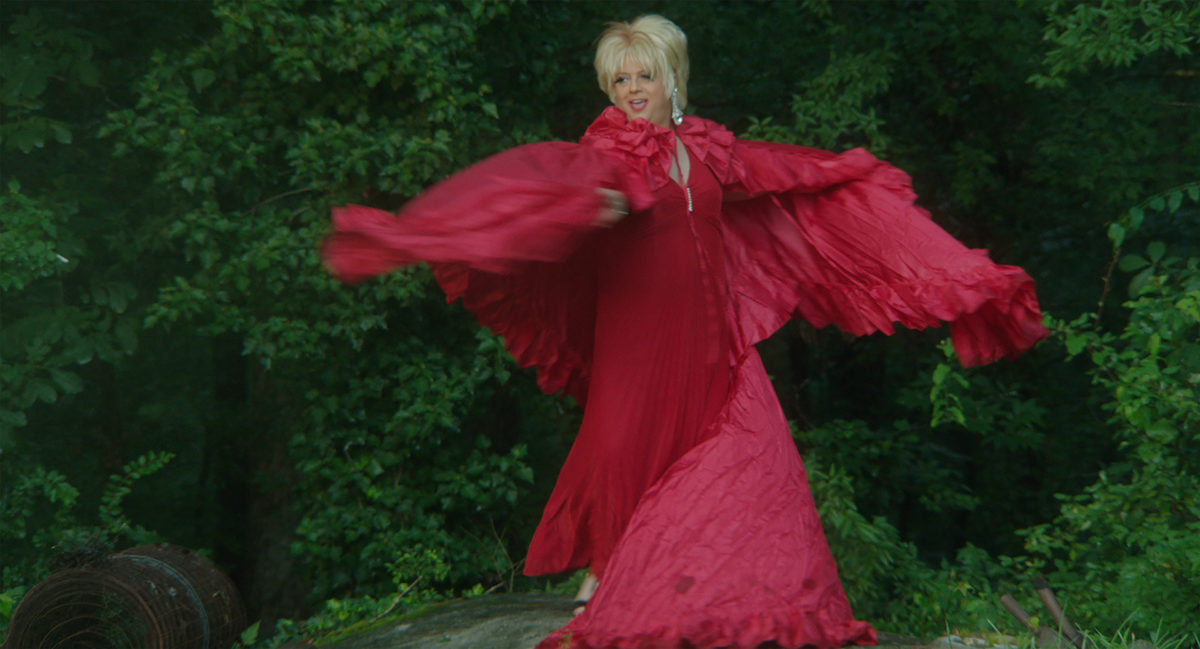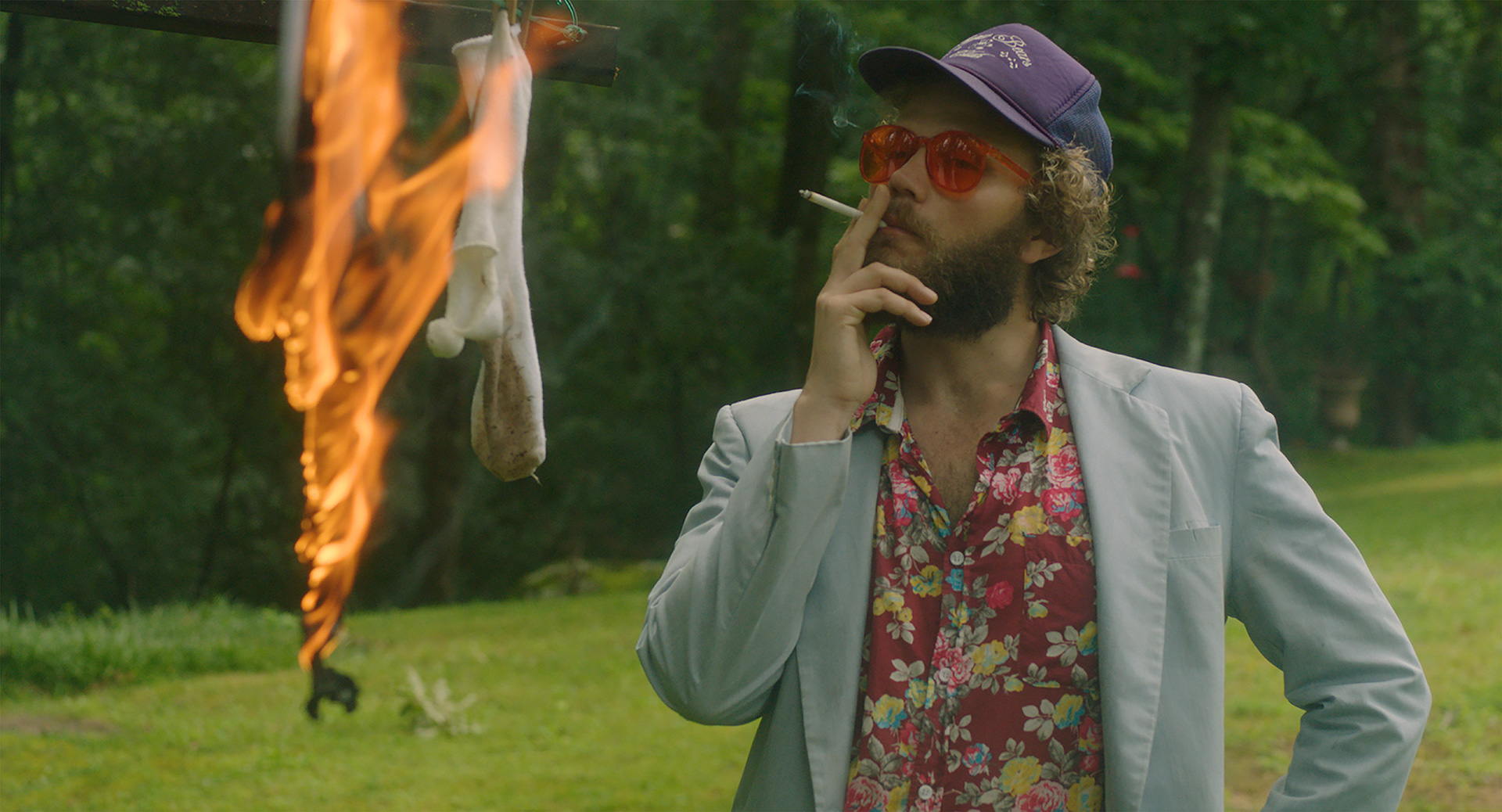The hope is that the sorrow of losing a loved one proves the extent of the pain we must suffer before we set about sifting through what’s left of that expired life. It’s why we throw parties after funerals to try and approach a sense of normalcy through a celebratory remembrance of yesterday’s good times together despite today’s tough truth making it possible. We take a deep breath, confront our grief, and await the will reading meant to put every duck in its row before dispersing back towards our respective homes and families yet again. We take care of these details in the present to alleviate what must ultimately be done in the future. We confirm each other’s wishes so there’s no room for any surprises.
As Bo McGuire discovers shortly after the passing of his grandmother in Hokes Bluff, Alabama, however, spoken words and surface actions don’t always get the job done. It doesn’t matter that the late matriarch put his mother (Susan McGuire) in-charge as the eldest of her children. It doesn’t matter that her one inalienable wish was for the house to go to her youngest, John Washington. Because even if witnesses were present and plans to honor that declaration moved forward, a piece of paper approved by a lawyer’s pen wasn’t there to render it binding. Even if Susan thought her mother silly upon warning her to be careful about Robert and Sharon rather seeing John homeless than alone in that house, silly words have a way of proving prophetic.
How could Susan have been so wrong about her siblings’ feelings? How could the happy group of Southerners laughing in Christmas videos become so fractured seemingly without warning? These are the questions Bo wondered on his journey back to his hometown from New York City and the answers he seeks are what he sets aflame. The dirty laundry that his grandmother would have aired by dictating where the house went in lieu of trusting her children to just do it is what McGuire is putting on the line in her stead. And like the title Socks on Fire portends, every new bit of information flaps in the wind for the world to see before combusting in a way that forces us to reconcile our own hearts alongside his.
To pinpoint the reason makes it no less heartbreaking upon discovering Sharon’s vitriol towards John (their brother Robert is intriguingly left alone by Bo despite being included in that warning and not included in the film) stems from him being gay and a drag queen. We like to believe that bigots will change when the thing they’re so vehemently against due to ignorance becomes a part of their lives through blood connections, but that’s not always the case. Sometimes they become radicalized by another voice caught in their ears. Sometimes their hatred merely amplifies since resentment had already been present long before finding out. And being a gay man himself, Bo couldn’t sideline himself as an idle bystander—especially considering his own relationship with Aunt Sharon similarly dissolved.

So he takes us to Hokes Bluff to mine the truth behind those smiling faces on countless VHS tapes. He speaks with John and his mother to hear their side and uses the official documents illustrating Sharon’s deeds to speak for her as objectively as possible. Because this specific conflict is but one piece of a much larger truth behind their family, however, McGuire finds himself needing to dig deeper than events post-funeral. He has to find the evolutionary pathways forward that permanently changed the identity of people he’s known his whole life. Video, photographs, and ephemera (curated like at a museum) can paint part of that history, but anecdotal memory is necessary for the rest. Rather than have his subjects reminisce aloud, Bo hires actors to reenact.
These aren’t just scenes that play silently below narration like episodes of Unsolved Mysteries, though. McGuire uses them to punctuate points, add humor, and get at the psychological motives of actions. He’s shrewd in the casting process too by enlisting Chuck Duck to portray Aunt Sharon in drag. It’s part slap in the face for her bigotry and part poignant juxtaposition to project the fact that we’re talking about human beings here. He’s in effect visually placing the woman that has caused so much strife for their family into her brother’s shoes. And we know this duality is intentional because so much of these reenactments are shown in varying states of behind the scenes disrepair. Bo is filming what he’s filming and breaking walls down in the process.
He’s also turning the camera on himself as an arbiter who truly believes the man he is today is a result of his love for all those involved in this inflammatory argument. He had Sharon as a role model growing up to buck the “Southern Belle” cliché and be combative and sarcastic. And he had John as a role model to live his truth and embrace his sexuality no matter what backlash arose in a red state like Alabama. To therefore see those two halves of his identity locked in this struggle is tough to comprehend. So he talks to the women who had an indelible effect on his adolescence (former teachers, his godmother, best friend, etc.) to try and wrap his head around how it could’ve happened.
Socks on Fire is a very personal and cathartic film as a result for its director and surely the many people like him who have endured similarly intolerant experiences. It’s also just an entertaining piece of cinema with colorful characters, a self-aware tone, and an outlet for release after an excess of stress and uncertainty. To see Bo, Susan, and John dancing at one point (the latter twirling his trademark baton) with clear eyes and an authentic joy is such a heartwarming contrast to the weight of the subject matter and the twists and turns Sharon’s sabotage takes. It’s an image that reveals the dirty laundry Nanny Washington refused to air wasn’t John’s homosexuality. She openly loved him without compare. It was that Sharon no longer did.
Socks on Fire was selected to world premiere at Tribeca Film Festival.

